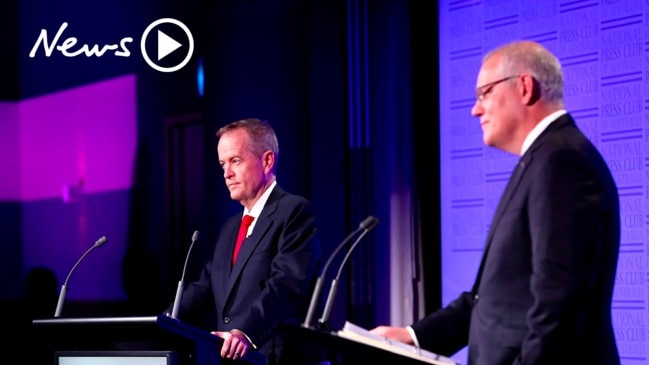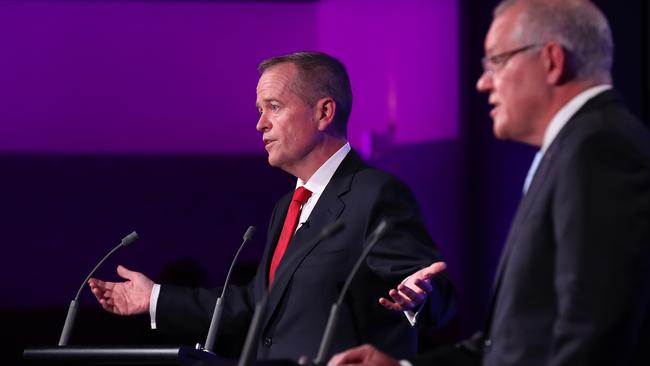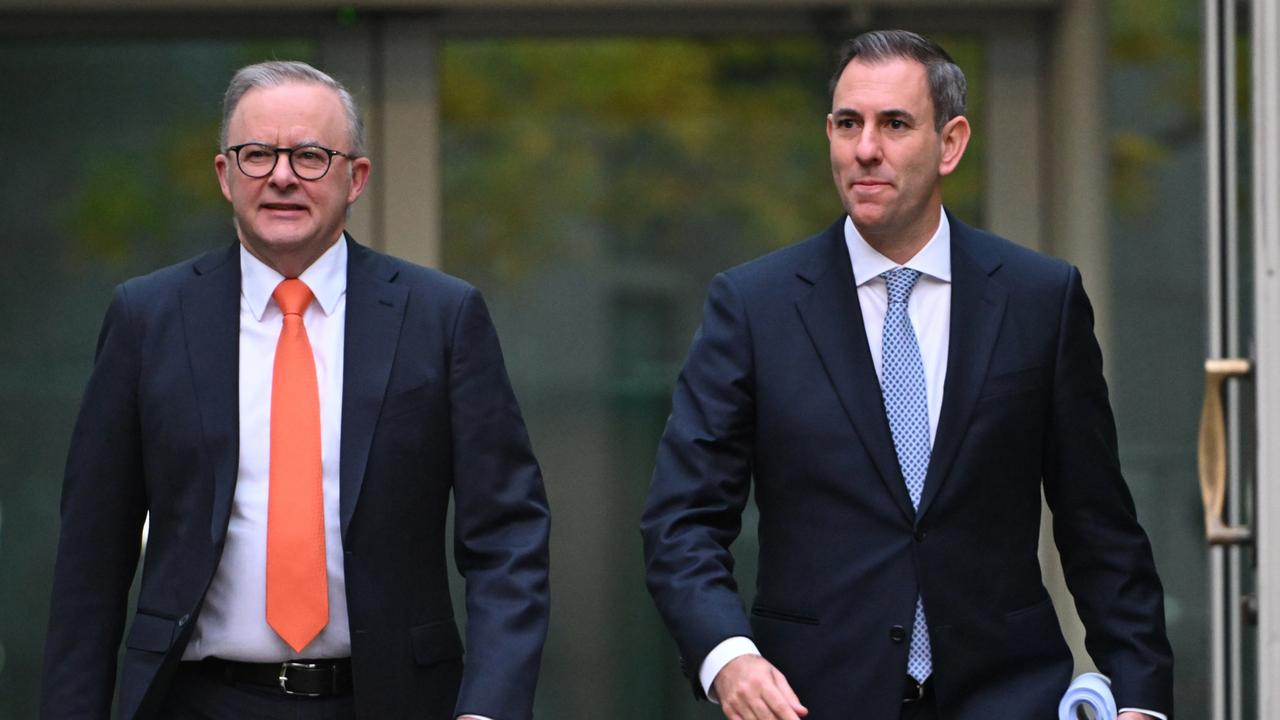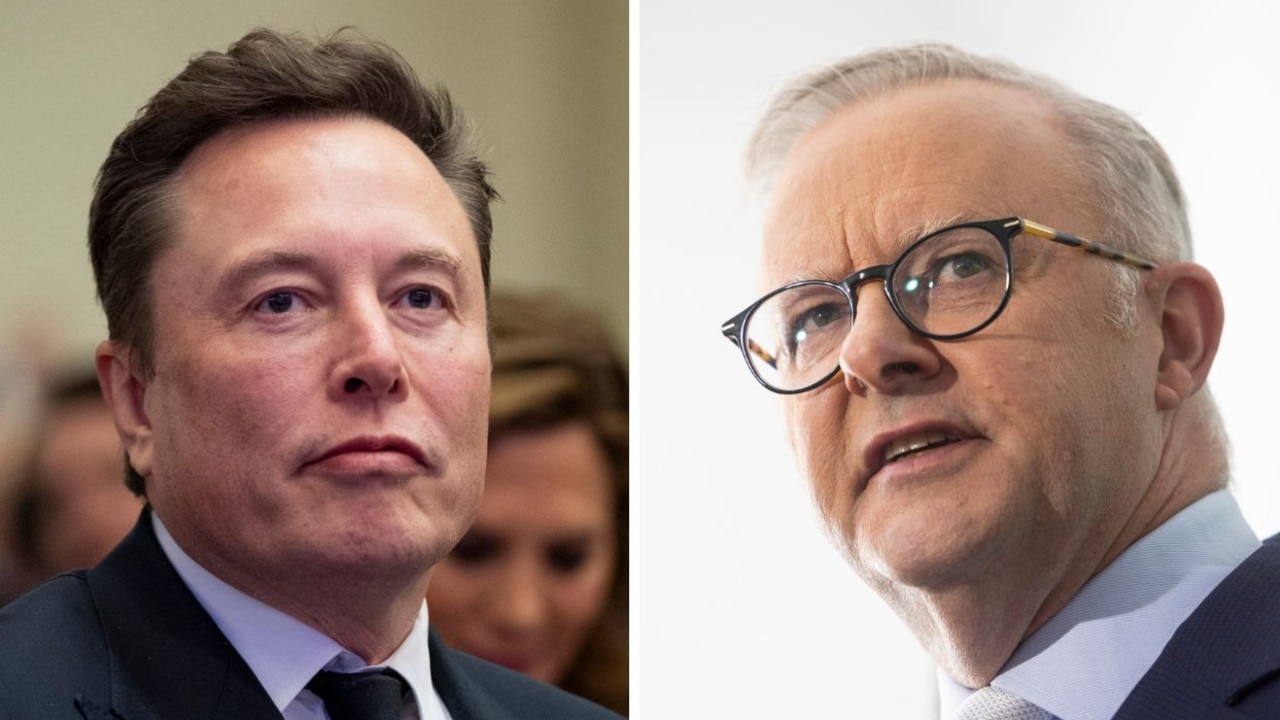Mark Kenny: Scott Morrison needs a game changer somewhere else after his debate losses
Does it matter that the outcome of the leadership debates was not as “political expert” Mark Kenny expected? Because, as he notes, John Howard often lost debates but won many terms in office.

Analysis
Don't miss out on the headlines from Analysis. Followed categories will be added to My News.
Who won the third leaders’ debate and does it matter?
After all, John Howard struggled in a number of debates in his time but went on to win elections anyway.
The frustrating answer for the Coalition is that Bill Shorten won because he did not lose whereas Scott Morrison lost because he did not win.
I’ll come back to this.
As a political journalist/commentator, declaring who won is among the first things you’re asked at the conclusion of any leaders’ election debate.
The trouble with this winner-loser binary is that there is no common understanding of what is being measured.
For example, is the question directed at the specialist’s assessment of which leader was most convincing? Or is it asking which of them had the most substance and was intellectually consistent? Quite different things.
Perhaps the question is shallower and merely seeks a judgment on who got their lines out most effectively.

So charged is the atmosphere that some onlookers cannot divorce what they wanted to happen from what actually did happen, and regard any critical commentary as extension of the debate. And to be fair, some of it plainly is.
As I understand the task of the political “expert” in such circumstances, the question goes to which of the two contenders scythed through the long grass of voter disengagement in order to win over people in their living rooms.
This is quite unknowable.
Yet, if dissecting an election debate has any purpose at all, it is the only index worth worrying about: Bluntly, did any undecideds become decideds and for whom?
We know subjective judgments can turn on things big and small from policy and presentation style, to perceptions of ease versus arrogance, confidence versus uncertainty.
Another variable is we press gallery “experts”, who examine politics in granular detail, could scarcely be more different from the politically disengaged “undecided” voter — the very people whose shoes we attempt to fill at that moment.
Example: When I appeared on ABC TV News Tonight immediately after the Perth debate, my supposedly expert conclusion was that Morrison had been the more assured and politically sharper.
Like his campaign to that point, Shorten’s comparatively hesitant performance had him defending his lead rather than leaning into the fight. Coming off air, I learnt the uncommitted studio audience had awarded it to the Opposition Leader by a staggering ratio of two to one.
Morrison had used his best cut-through lines, and in strictly debating terms, seemed to have the upper hand. Ordinary voters saw something else.
For Morrison’s strategists, this signalled a serious problem — even when he felt he was landing blows over costings, risks to the economy, new taxes, budget blowouts and so forth, voters were hearing something else: aggression, arrogance, more excuses for inaction on climate change and flat wages growth.
It’s just one of the ways in which election 2019 has reversed the roles between Government and Opposition.
Morrison talks of the risk of change, and voters hear the risks of staying the same.
The Government, even after six years (or rather because of them) has put forward a minimalist business-as-usual platform built around generous down-the-track income tax cuts and little else. What’s going on? With the salutary exception of the disastrous 1993, Fightback! election, small-target strategies are usually run by oppositions, not governments.
So, how did Bill Shorten win the debate because he did not lose it whereas Scott Morrison lost because he did not win?
Because, 10 days out, Morrison needed a decisive victory: A game-changing result after trailing all campaign and with the Coalition’s primary vote stalled at around four points lower than the 42 per cent which just got it home in 2016.
Having won the previous two debates, and with a small but consistent lead in the polls, Shorten needed only to not lose. This election is not over yet but Morrison needs to find that game changer somewhere else. But hey, don’t listen to me. I’m an expert.
Mark Kenny is Contributing Editor and a Senior Fellow at the Australian National Uni
Originally published as Mark Kenny: Scott Morrison needs a game changer somewhere else after his debate losses


